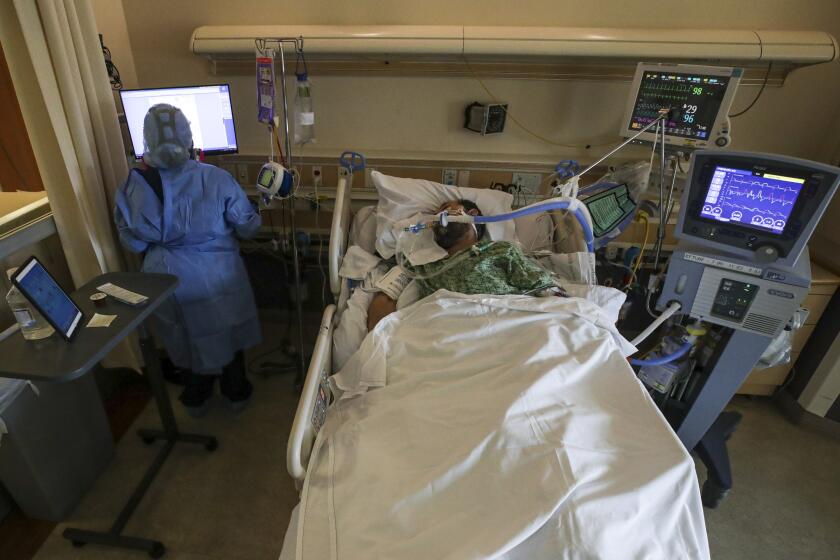Warning of Faulty Pacemakers Issued : Health: Doctors are told to keep a close watch on patients with the implants. Defective ‘leads’ have caused some failures, GAO report says.
The federal government warned Friday that faulty parts on some types of cardiac pacemakers could cause the devices to fail and urged doctors to closely monitor patients who have the implants.
Troublesome “leads” on some of the pacemakers in question have lead to a failure rate of up to 8% from three to seven years after implantation, according to a report prepared by the General Accounting Office and released by Rep. Henry A. Waxman (D-Los Angeles), chairman of the House Energy and Commerce subcommittee on health. The Food and Drug Administration considers 5% over five years an “acceptable” failure rate.
“The health risks associated with defective pacemaker leads are real. . . . Indeed, their failure could prove fatal,” the report said.
Neither the GAO nor the Food and Drug Administration, which has been made aware of the problem, recommended removal of any of the devices, given the cost involved and the additional risks associated with any surgery, particularly on the elderly. The GAO, the investigative arm of Congress, estimated that nearly a half-million people in this country--most over age 65--have pacemakers.
A cardiac pacemaker consists of two components that are permanently implanted in the body to assist the heart’s natural beat. One of them is a tiny generator, which produces an electric pulse. The other is one or more leads that are inserted through a blood vessel. The leads transmit small electric pulses to the heart and return electrical signals to the pulse generator.
Most of the pacemakers in question are manufactured by Medtronic Inc., of Minneapolis, the GAO said.
In 1984, one of the Medtronic models was recalled by the federal government. But 14 other models, with the same technological characteristics as the recalled model, remained on the market, the GAO said.
The remaining leads have demonstrated a “wide range of failure rates,” from zero to 8% or higher after three to seven years following implantation, the report said.
Medtronic officials could not be reached for comment.
The GAO estimated that various medical services stemming from the problematic pacemakers could cost the federal government from $50 million to $56 million through Medicare, which insures most of the elderly people who have the devices.
The FDA has asked manufacturers to conduct studies of all pacemakers on the market since 1982 to identify leads with abnormally high failure rates, said Jim Benson, director of the FDA’s center for devices and radiological health. “To me, that is the most sensible way to zero in on potentially faulty leads,” he said.
The agency has the authority to require manufacturers to conduct such studies under legislation passed by Congress in 1990.
Once those studies are complete, the agency intends to notify patients whose pacemakers might have the potentially faulty leads, he said.
The GAO also recommended that a national registry of pacemaker recipients be established to keep track of patients and device performance to detect problems. The GAO also urged that the FDA establish a minimum standard for pacemaker lead performance.
More to Read
Start your day right
Sign up for Essential California for news, features and recommendations from the L.A. Times and beyond in your inbox six days a week.
You may occasionally receive promotional content from the Los Angeles Times.






